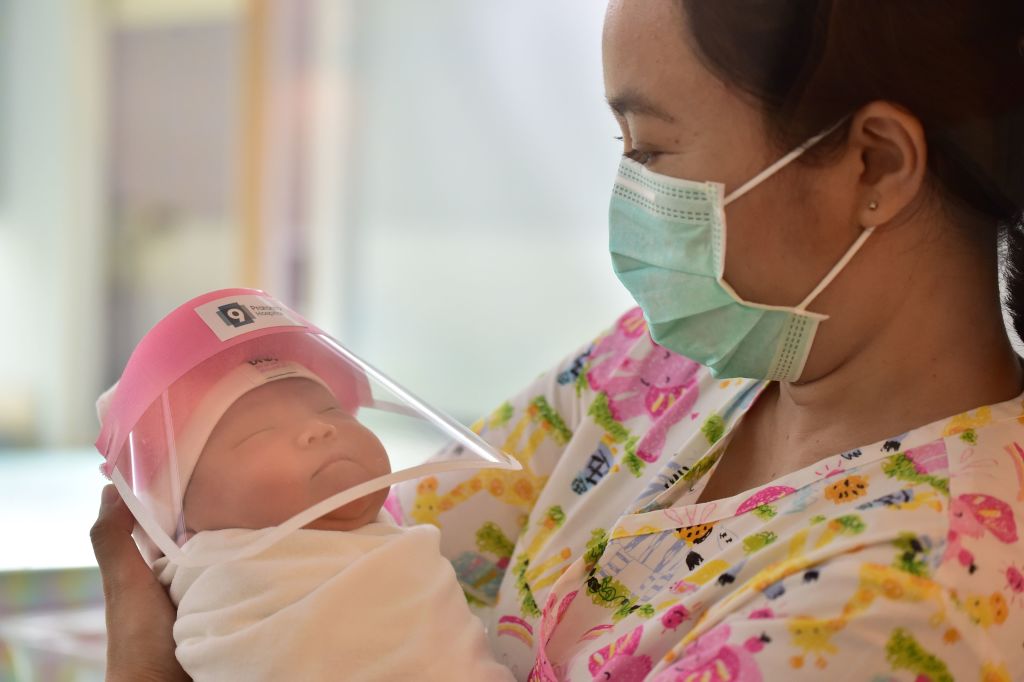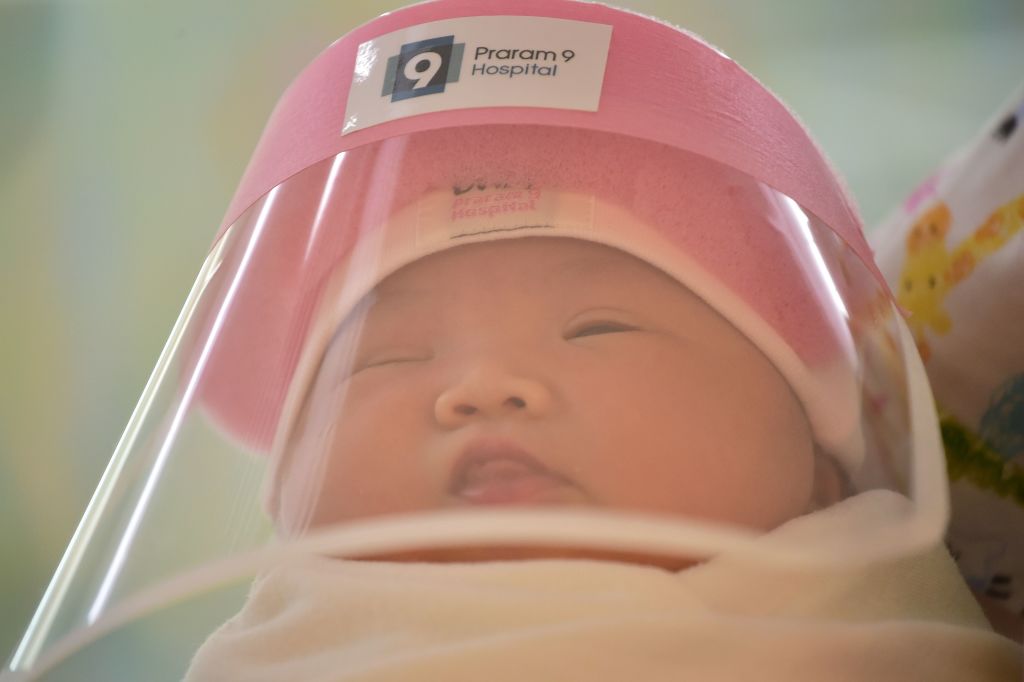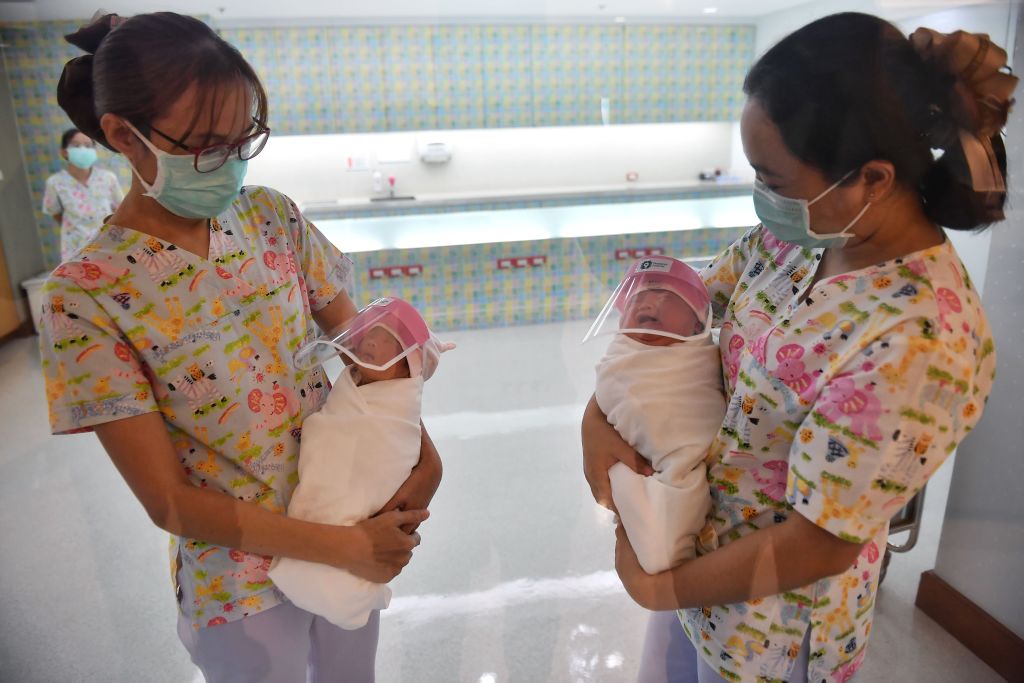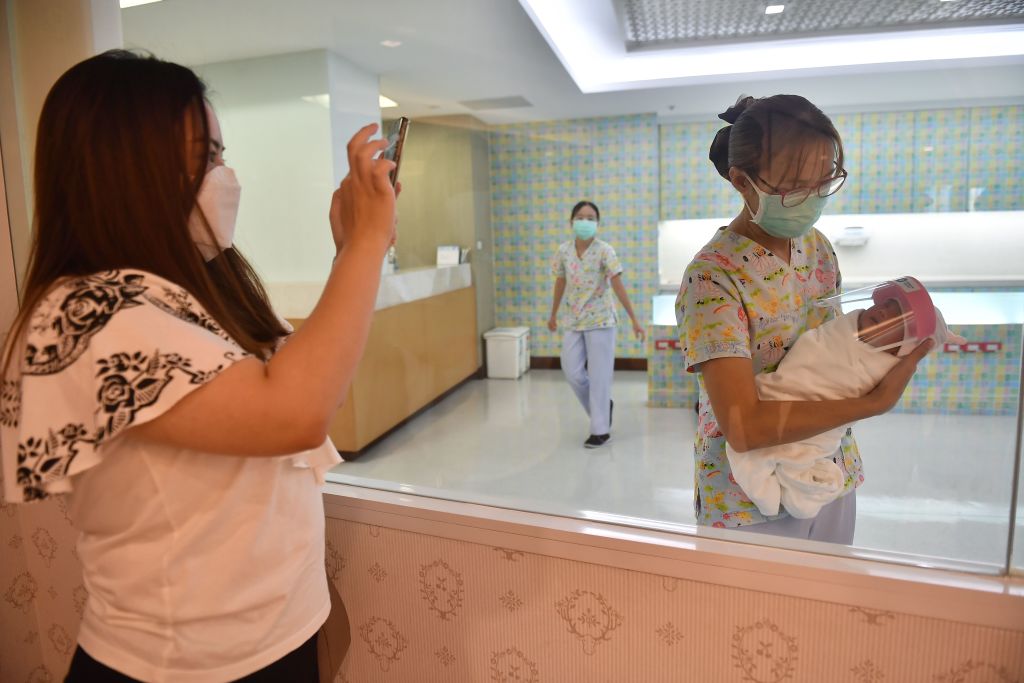Even amidst a pandemic, life goes on. That’s certainly the case at Praram 9 Hospital in Bangkok, Thailand, where on Thursday, two newborn babies were given tiny face shields to help protect them from COVID-19 — the disease caused by the novel coronavirus — while they traveled home from the hospital.

In a statement to TIME, the hospital explains that on Thursday the nurses had began preparing the babies to be discharged and taken home from the hospital. When the babies’ mother explained that she would have to take a taxi or public transport to get home, “the nurses worried about the babies’ well-being and they handcrafted the face shields,” the hospital says.
“The face shields were just for a short-term protection,” the statement continues. The hospital adds that it does not have any pediatric cases of COVID-19.
In a post on Facebook, the hospital reiterated that these face shields were for a “unique case” just for the babies’ journey home from the hospital and are not usually given to all newborn babies in the hospital. “Because safety is what we care about the highest,” the post said.
The photographs, which were taken through a glass window in the hospitals maternity ward, show nurses and the mother also wearing masks around the newborns.



The U.S. Centers for Disease Control and Prevention (CDC) recommends children aged two and above wear face masks in public to help stop the spread of coronavirus. Experts believe children are more likely to be asymptotic carriers and could be inadvertently spreading the virus. However, as Dr. Jamie Macklin, a pediatric hospitalist at Nationwide Children’s Hospital in Columbus, Ohio, told TODAY, “Babies and young toddlers have smaller airways… Breathing through a mask can be harder for them. Using a mask on an infant can increase their risk of suffocation.” Experts don’t recommend putting a mask on a child under the age of two.
According to the CDC, a newborn baby is susceptible to person-to-person spread of coronavirus. “A very small number of babies have tested positive for the virus shortly after birth,” the CDC says on its information page about pregnancy and breastfeeding. “However, it is unknown if these babies got the virus before or after birth.”
As of Saturday morning Eastern Time, Thailand had at least 2,518 confirmed cases of coronavirus and at least 35 confirmed deaths, according to a tracker by Johns Hopkins University. Like other countries around the world, Thailand has issued a state of emergency, closing gathering places like bars and restaurants and even banning the sale of alcohol in an attempt to discourage socializing.
More Must-Reads from TIME
- Cybersecurity Experts Are Sounding the Alarm on DOGE
- Meet the 2025 Women of the Year
- The Harsh Truth About Disability Inclusion
- Why Do More Young Adults Have Cancer?
- Colman Domingo Leads With Radical Love
- How to Get Better at Doing Things Alone
- Michelle Zauner Stares Down the Darkness
Write to Madeleine Carlisle at madeleine.carlisle@time.com